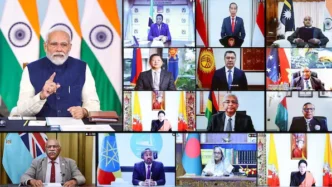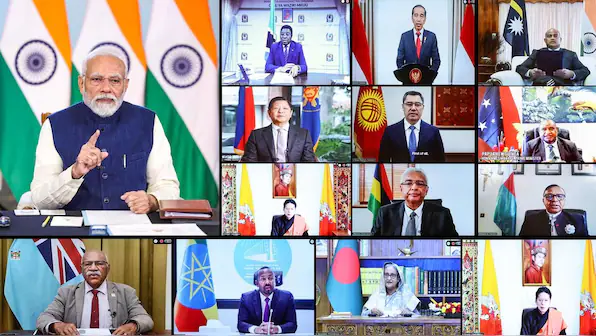Signals Tough Stance on Trade, Immigration, and Drug Trafficking Ahead of Presidency
US President-elect Donald Trump is making waves even before formally assuming office on January 20 next year. By intensifying his rhetoric against illegal immigration, drug trafficking, and international trade imbalances, Trump is signaling an aggressive approach to implementing his campaign promises. His recent announcements, including naming specific countries, underline a commitment to what he calls “America First” policies, potentially setting the stage for contentious diplomatic and economic relations.
Trade Wars Loom Over US Partners
On Monday, Trump pledged to impose hefty tariffs on the United States’ three largest trading partners—Canada, Mexico, and China. He announced a 25% tariff on imports from Mexico and Canada, vowing to prioritize this as one of his first presidential actions. This move, aimed at addressing trade deficits, could strain relations with neighboring countries and disrupt long-standing trade agreements.
“Drugs like Fentanyl are pouring into the U.S., mostly through Mexico,” Trump alleged, while also accusing Canada of serving as a route for illegal immigrants entering the country.
Additionally, Trump proposed a 10% tariff on Chinese imports, citing Beijing’s alleged inaction on drug trafficking as a key reason. “Until such time as they stop, my government will impose additional tariffs on all their products entering the United States,” he declared.
Implications for Trade Agreements
Mexico and Canada, two of the United States’ closest economic partners, rely heavily on the American market. In 2023, more than 83% of Mexican exports and 75% of Canadian exports were destined for the U.S. Trump’s proposed tariffs, however, would appear to violate the U.S.-Mexico-Canada Agreement (USMCA), a deal he himself signed into law in 2020. This agreement promotes largely duty-free trade among the three nations and has been a cornerstone of economic stability in the region.
If these tariffs are implemented, they could spark retaliatory measures, threatening economic partnerships and possibly plunging the region into a trade war.
China Responds to Tariff Threats
Trump’s escalating rhetoric against China has also drawn sharp responses from Beijing. A spokesperson from the Chinese embassy in Washington warned, “No one will win a trade war or a tariff war.” Trump’s threats to end China’s most-favored-nation trading status and impose tariffs exceeding 60% represent a significant escalation from his first term, when tariff battles disrupted global markets.
China’s economy, already grappling with a prolonged property downturn, debt risks, and weak domestic demand, may find itself vulnerable if the proposed tariffs come into effect. However, Beijing’s countermeasures could also destabilize global supply chains and further strain U.S.-China relations.
A Tough Road Ahead
Trump’s pre-presidency announcements demonstrate his intent to swiftly act on his campaign promises. However, these proposals carry significant risks—legal challenges from trade partners, possible violations of international agreements, and the economic fallout of strained relations.
With Trump set to take office, the world watches closely as the United States prepares to navigate a potentially turbulent period in trade and foreign policy. Whether these policies will achieve the intended goals of curbing illegal immigration and addressing trade imbalances remains to be seen. For now, however, Trump appears determined to push forward with his hardline stance, regardless of the consequences.













